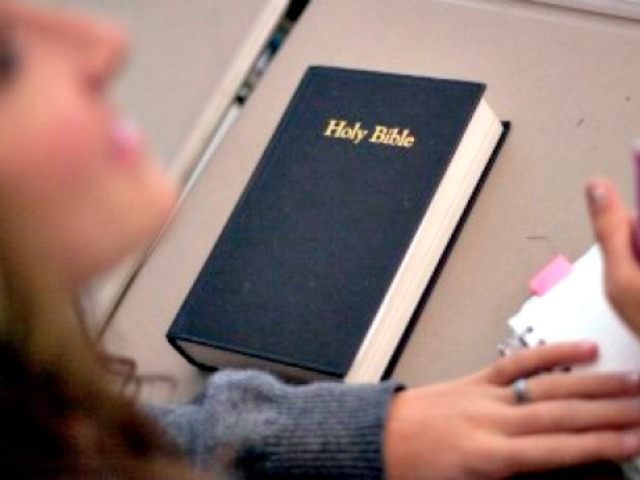The American Library Association (ALA) has The Holy Bible on its list of the top 10 most “challenged” books for the first time in 10 years.
The Bible was challenged for “religious viewpoints” primarily because of the “mistaken perception that separation of church and state means publicly funded institutions are not allowed to spend funds on religious information,” said Deborah Caldwell Stone, director of the ALA Office for Intellectual Freedom, according to National Public Radio.
As NPR notes, the ALA defines a “challenge” as a “formal, written complaint filed with a library or school requesting that materials be removed because of content or appropriateness.”
The hostility towards the Bible has impact on other religious books. For example, Nasreen’s Secret School: A True Story from Afghanistan was also challenged for “religious viewpoint” in Duval County Public Schools in Florida due to its references to Islam, reports Jacksonville.com. Dianne Haines Roberts said about Nasreen’s Secret, “I’m a Christian … and in public school, we’re not allowed to have any references to God, Jesus or passages about creation. I just think what’s good for one group, should be good for all.”
The full list of the top 10 most “challenged” books of 2015 is:
- Looking for Alaska, by John Green Reasons: Offensive language, sexually explicit, and unsuited for age group.
- Fifty Shades of Grey, by E. L. James Reasons: Sexually explicit, unsuited to age group, and other (“poorly written,” “concerns that a group of teenagers will want to try it”).
- I Am Jazz, by Jessica Herthel and Jazz Jennings Reasons: Inaccurate, homosexuality, sex education, religious viewpoint, and unsuited for age group.
- Beyond Magenta: Transgender Teens Speak Out, by Susan Kuklin Reasons: Anti-family, offensive language, homosexuality, sex education, political viewpoint, religious viewpoint, unsuited for age group, and other (“wants to remove from collection to ward off complaints”).
- The Curious Incident of the Dog in the Night-Time, by Mark Haddon Reasons: Offensive language, religious viewpoint, unsuited for age group, and other (“profanity and atheism”).
- The Holy Bible Reasons: Religious viewpoint.
- Fun Home, by Alison Bechdel Reasons: Violence and other (“graphic images”).
- Habibi, by Craig Thompson Reasons: Nudity, sexually explicit, and unsuited for age group.
- Nasreen’s Secret School: A True Story from Afghanistan, by Jeanette Winter Reasons: Religious viewpoint, unsuited to age group, and violence.
- Two Boys Kissing, by David Levithan Reasons: Homosexuality and other (“condones public displays of affection”)
In May of 2015, public school officials in Kittery Point, Maine apologized to parents of students in kindergarten through third grade for failing to notify them before their children were exposed to the book I am Jazz, a story about a transgendered child that supposedly provides a lesson on tolerance and acceptance.
According to reports of the incident, Dana Richerich, school counselor at Horace Mitchell Primary School, read the book I Am Jazz to K-3 students. The book, co-authored by Jazz Jennings, 14, and Jessica Herthel, is the story of Jazz, who says she knew she had “a girl’s brain in a boy’s body” when she was two years old. According to the book, Jazz’s parents took her to a doctor who said Jazz is transgender and was born that way.
A parent of a first-grader at the school, however, called school principal David Foster when her son came home asking questions about sexual identity.
Stone said the fact that the Bible is on the “challenged” list for the first time suggests that faith is “very present on the minds of many people in society.”
“As a society, considering an ‘index of complaints’ helps us to understand who we are and where we’re going,” writes James LaRue, director of the Office for Intellectual Freedom. “Cultures change over time, and the things we fear, or celebrate, change with them.”
LaRue added that the “list of challenged titles is not comprehensive.”
“Not every serious attempt to have a book removed from a library makes it to us, nor every challenge to a movie, program, or exhibit,” he continued. “In fact, where challenges are most successful in removing or restricting access to ideas, no one talks about it at all.”

COMMENTS
Please let us know if you're having issues with commenting.